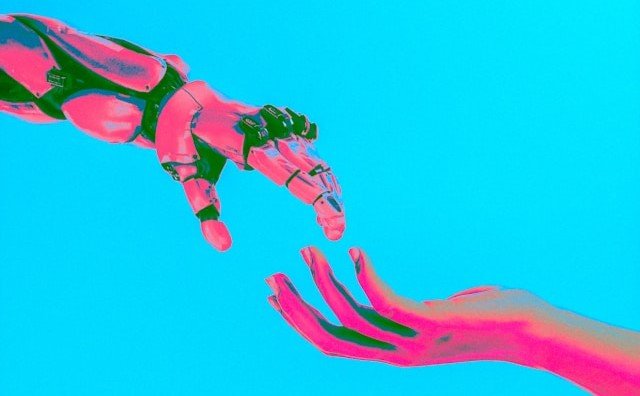I remember reading articles, even before COVID-19, that people longed for connection with each other. The personal space of individuals was expanding due to less physical interaction, which negatively impacted mental health. This growing isolation led to a sense of searching for purpose but often coming up empty-handed. Our skills and activities provide meaning in life, and while AI makes many modern tasks easier and quicker, it can also lead to automation that removes the human element from work. This raises the question: if the focus is solely on making money, what is the true value of the content or even the person “providing” it?
The Perks of AI
AI tools have revolutionized productivity, offering unprecedented convenience. Grammarly, for example, enhances writing by suggesting grammar and style improvements, while Tableau transforms complex data into understandable visualizations. According to McKinsey & Company, AI has the potential to automate about 60% of all occupations, significantly boosting efficiency and freeing up human capital for more strategic work.
The Downside of Over-Reliance
Despite these advantages, over-reliance on AI can be detrimental. Studies show that isolation and loneliness, exacerbated by reduced physical interactions, significantly impact mental health. During the COVID-19 pandemic, about 41% of U.S. adults experienced high levels of psychological distress, with young adults and those with pre-existing mental health conditions being particularly affected (Pew Research Center). The World Health Organization reported that the pandemic severely impacted mental health globally, emphasizing the importance of social connections and the adverse effects of prolonged isolation (World Health Organization (WHO)).
Psychologist Daniel Goleman emphasizes that while AI can process information, it lacks emotional intelligence and interpersonal skills, which are uniquely human and crucial for leadership, teamwork, and client relations.
Overusing AI and Automation: The Impact on Authenticity and Connections
When overused, AI and automation can significantly reduce the authenticity of work and products. Authenticity in work often stems from the personal touch, creativity, and unique perspectives that individuals bring to their tasks. For instance, a piece of writing crafted solely by AI may lack the nuanced emotional depth and personal experiences that a human writer incorporates. This can lead to content that feels generic or impersonal, missing the unique voice and authenticity that engage readers on a deeper level.
Moreover, the automation of tasks can lead to a reduction in authentic human connections. In customer service, for example, automated responses and chatbots can handle a high volume of queries efficiently, but they often lack the empathy and understanding that human interactions provide. Customers may feel that their concerns are not genuinely understood or valued, leading to dissatisfaction and a lack of trust in the service.
A study published in PLOS ONE found that increased virtual interactions during the pandemic did not equate to the same quality of social connection as in-person interactions. The study highlighted that while digital communication tools could bridge the gap to some extent, they often fell short of fulfilling the deeper emotional needs that face-to-face interactions provide (PLOS).
The Value of Human Existence

If AI could fully replicate the intimacy and interactions of humans, it poses a philosophical dilemma about the value of human existence. Human interactions are deeply rooted in emotional complexity, empathy, and shared experiences that shape our identities and relationships. Even if AI could mimic these interactions perfectly, it would lack the genuine emotions and lived experiences that make human connections meaningful.
The potential for AI to devalue human existence is a significant concern. If humans rely entirely on AI for connection and intimacy, it could lead to a society where genuine human interaction is rare, and the intrinsic value of being human is diminished. This devaluation risks reducing humans to mere operators or overseers of machines, stripping away the richness of human experience and the joy derived from authentic relationships.
Striking the Balance
Here are some practical tips for balancing AI use with personal skill development:
- Use AI as an Aid, Not a Crutch: Leverage AI tools to enhance your work, but understand the underlying processes. Learn from AI suggestions to improve your skills organically.
- Continuous Learning: Commit to lifelong learning. Take courses, read books, and engage in activities that challenge your mind, ensuring your work remains dynamic and interesting.
- Human Interaction: Prioritize activities involving human interaction. Networking, collaborative projects, and meaningful conversations build emotional intelligence and interpersonal skills that AI cannot replicate.
- Creative Pursuits: Engage in hobbies or projects that stimulate creativity. Whether it’s painting, writing, or coding, creative endeavors foster innovation and critical thinking. Engaging in writing and other creative outlets can significantly improve mental health by providing a means of emotional expression and stress relief. Studies have shown that these activities can reduce symptoms of anxiety and depression by promoting mindfulness and enhancing overall psychological well-being (School of Public Health) (Mind).
Real-World Examples
Consider a writer using AI for editing. While AI can suggest improvements, the writer’s unique voice and style come from personal experiences and creativity. Balancing AI’s efficiency with personal skill development ensures the work remains polished and authentic.
Conclusion
Incorporating AI into workflows offers numerous benefits, but it’s crucial to develop and maintain our skills. By using AI as a tool rather than a replacement and committing to continuous personal growth, we can remain interesting, capable, and innovative in an increasingly automated world. By understanding the necessity of human skills and the potential pitfalls of over-reliance on AI, we can create a balanced approach that leverages technology’s strengths while nurturing our unique human abilities.
Sources:




0 Comments